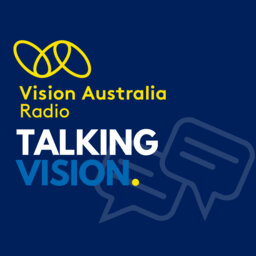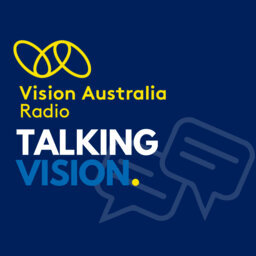Talking Vision Edition 594 Week of 4th of October 2021
It’s a special White Cane Day edition of Talking Vision as Sam catches up with vice president of Blind Citizens Australia Fiona Woods to talk about the upcoming David Blyth Award which will be held on the evening of White Cane Day on October 15.
Vision Australia client Ed Tap also joins the show with his orientation and mobility instructor Carolina Canavezzi to talk about the journey they’ve been on together to improve Ed’s independence after he experienced further vision loss.
Then to wrap up the show, Stella Glorie pops in for a quick chat about Vision Australia’s monthly newsletter For Your Information or FYI.
In 1 playlist(s)
Talking Vision by Vision Australia Radio
Vision Australia Radiothon is on now. Donate via www.varadio.org and make a tax deductible donation …Social links
Follow podcast
Recent clips

Talking Vision 819 Week Beginning 16th of February 2026
28:59

Talking Vision 818 Week Beginning 9th of February 2026
28:10

Talking Vision 817 Week Beginning 2nd of February 2026
27:37
 Talking Vision by Vision Australia Radio
Talking Vision by Vision Australia Radio